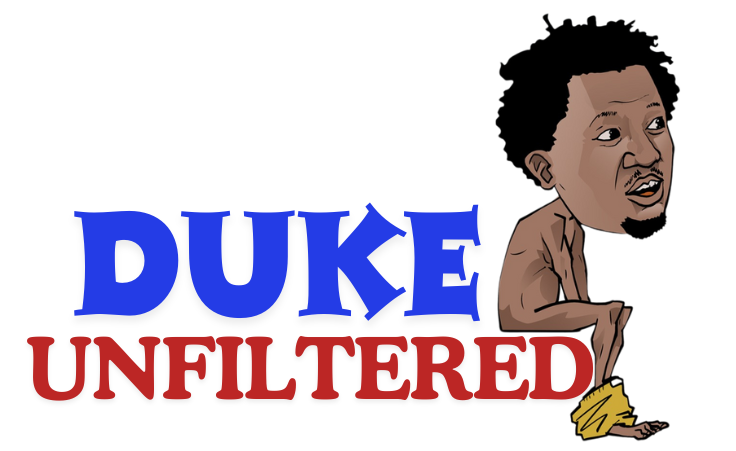Rarely do Nollywood films catch my attention but I must confess my effusive love for this work.
Apparently, I had stumbled on set somewhere in a hotel in Lekki where I had met the very handsome and charismatic Uzor Arukwe.
Didn’t know they were shooting this blockbuster as I engaged him in discussions about Nollywood and a possible showing in one of my stage plays
Rarely would a film hold your attention from beginning to end. The neatness of this production was quite engaging.
The casting was perfect although I wondered why almost all-female cast had big bums
From the unnecessarily obnoxious boss to the assistant and to Bamike the lead female cast all came on set adorned with very beautiful but at the same time distracting bums
Bam, as she is normally called, was a true star. Her deliberate delivery of her lines, her positioning, her diction, her calm disposition and her infusion in the character won me over.
I cannot stop pouring accolades on her. Her beauty and huge aggressive sexuality began to make me wonder if something was wrong with Odogwu, who kept refusing her offer to ‘come in’.
The last time I saw such deliberate sexuality and delivery in Nollywood was with Genevieve Nnaji who achieved celestial adoration with her standoff sexuality which came with a birthing delivery that made you just quiver watching her.
Bam made me more than quiver; she made me want to jump into bed with her, transforming me into an Odogwu without an accent.
Uzor, on the other hand, owned the film. His strong portrayal of the stereotyped Igbo wealthy man, complete with his costuming and his strong facial sweetness delivered an epochal performance that kept rushes of the movie in your head hours after watching it
Uzor is a strong character actor. His charismatic entre in movies is usually remarkable and it is no wonder that today he is Nollywood royalty
One would not have expected such a brilliant attempt at comedy. He really was excellent in pouring a serious character into a comedic flow which kept the viewers attention
His Odogwu was romantic, he wasn’t a deep end of the road stark illiterate Odogwu with the big purse under his shoulders but a modernised Odogwu who although still a little bit below the ‘freshness’ of the modern-day paramour was likeable and relatable unlike the obnoxious Odogwu of say Kanayo Kanayo, Emoney and Obi Cubana who go about strengthening the hair-brained money miss road reputation of the Igbo wealthy class
This Odogwu was kind, understood how to treat a woman – I just came to listen to you, knew how to support a woman – focus on your job and think about me after. Knew how to encourage a woman – why not concentrate on your own business and had class, self-respect and dignity – I cannot continue to beat a drum that has no sound.
So it is a wonder that I have heard that some people especially Igbos have gone on rampage as to the so-called negative vibes of these stereotype
If you ask me, I would say the writers cleaned up the Odogwu, modernised him, and made him gentler and more likeable before introducing him to us in a role we have never seen him and they succeeded
Normally, the stereotype of the sort is more of the Okonkwo of the very old TV series Second Chance.
He would be brash, stark illiterate, and believe in the power of his wealth rather than in his intelligence, which was limited to his street smartness, which he deploys in trading.
As earlier mentioned, the Cubana chief Priests of this world and his type who bury their mothers, celebrate their titles, wed their daughters and the rest with such crass show of wealth and brashness do more damage to the Igbo man’s reputation daily than Omoni’s Odogwu
Anyway, let me talk about the little mistakes in the film.
The storyline was a tard predictable, throwing some form of boredom into it.
I knew that Bam Bam would eventually open fire on the wicked Boss during the first interaction they had early in the film
I knew that Bam and Uzor would fight in the middle and end up in a climactic embrace at the end of the film – classic Mills and Booms. It would have been more electric if they never found themselves. That would have been magic, leaving us crying for part two.
The weakest characterization was the entitled boyfriend. His acting was cringeworthy. He was averagely acceptable when he was begging for $2,000 to make it up, but his acting bordered on buffoonery after he was stripped naked and kicked out.
That scene was lame. The idea behind it was stupid as no man that size would strip himself down to his undies on the words of an angry girlfriend. Yes, he could be kicked out, but strip? That was too far-fetched
His characterisation was excellent, though – those kinds of people dressed, talked and carried on that way, but I guessed the casting people just looked at his looks and said – oya, he looks the part, let’s manage him.
The boss was too wicked. There was no need for all of that unprovoked madness. Even if you didn’t like her or were shagging Seun, someone we didn’t see, it was just too much
But Uzor delivered an Oscar-winning performance with the 3am call.
Mbok, I nearly died from laughter with the – repeat after me.
That anger was pure, it was real and well delivered and he looked so handsome doing it I’m sure that moment, gave Bam Bam her independence leading her to finally stand up against her more beautiful boss with a bigger bum
Let me address the issue of stereotypes which this film has thrown up.
Nigerians have beautifully arrogated certain stereotypes to our major tribes
The Igbos are what we just watched; the Northerners, we call them Mallam and all that comes with that. The Yorubas have been seen as party-loving empty heads who can do anything for a party and for us in Akwa Ibom we have ours as the sex-loving, funny speaking tribe of housemaids and houseboys
These are sometimes very derogatory and the creative industry has played very wickedly into these with their characterization that are sometimes wicked and not funny at all
Examples are Nedu’s mai guard, Okon Calabars performances, Kate Henshaw’s depiction of the ‘Carraber’ girl and the slew of Yoruba actors who have done a lot of damage to the Yoruba nation with their illiterate bellicose characterisation
From the Baba Sala era down to Baba Mero to Papi Luwe down to Saka and the rest, the slapstick routine of these actors didn’t do too well to the way we see the Yoruba Nation
But guess what, the comedic appeal brought in some level of unity as we laughed at these actors and at ourselves and we began to mimic them
You will see an Igbo man yell at his Yorba neighbour – oya Owambe man come and move your car, and the Yoruba man would shout back Odogwu, I am coming.
There is fun in these stereotypes even though we in Akwa Ibom do not really like them cos of their derogatory notions – we are more than just sex and domestic servants
Same as others, the northerners are more than coloured teeth denizens who speak English with an F in every pronunciation
But therein lies the fun of being Nigerian as we still rise above in unity as we sing our afrobeats together, watch the super eagles together and marvel at Nollywood together
Omoni Oboli’s Odowgu was funny, beautiful, likeable and relatable. Even me writing, started calling myself Odogwu when my daughter Zara walked up to me to ask for something and I said talk to me like an Odogwu
Well done to the cast and crew, well done to the Producers and well done to the scriptwriters.
I give it 5 star and strongly recommend it not that they even need my recommendation as the movie has crossed the 10m viewer mark.
Wow
Duke of Shomolu
Last modified: March 16, 2025




